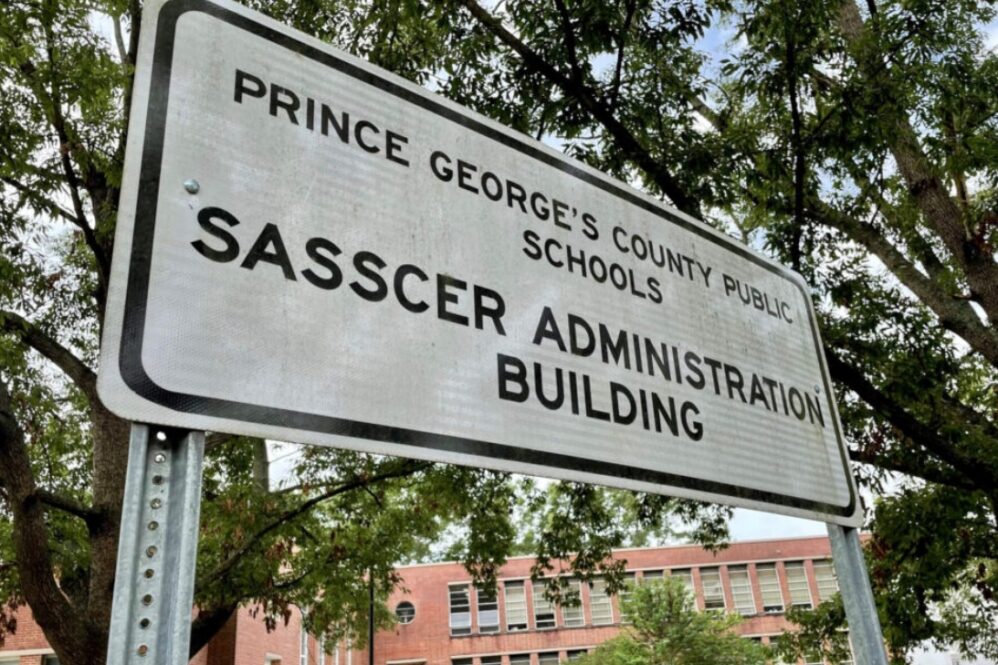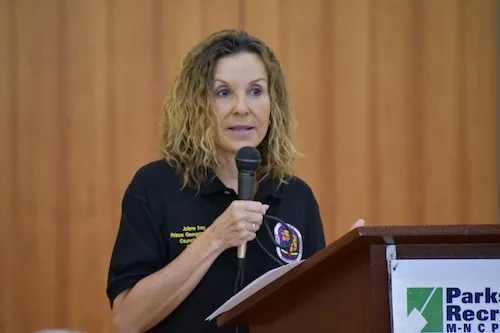Maryland Matters: An ethics report that implicated wrongdoing by a majority of the elected members of the Prince George’s County Board of Education last year misattributed or ignored contradictory information and included opinion-based conclusions and inaccuracies, according to a damning new review by Maryland’s inspector general for education.
In fact, Inspector General Richard P. Henry concluded that others had acted unethically during the fracas and that the ethics panel “did not provide a complete and fact-based report.”
“Throughout the [inspector general] interview process, it was discovered that information contained in the [ethics panel’s] report was improperly referenced or factually inaccurate,” Henry wrote in a report released late last week.
The probe by the ethics panel — which resigned en masse after the state inspector general started investigating and did not fully cooperate with Henry’s review — cost the school system more than $100,000, according to the inspector general’s report.
“We presented the ethics panel with a lot of evidence prior to them releasing their findings and they chose to discard that information, they chose to ignore it,” Shayla Adams-Stafford, one of the board members named in the flawed ethics report, said in an interview. “And had they not done that, we could have saved tens of thousands of dollars that could have gone back into the classroom and been used for our students.”
Adams-Stafford is among seven board members — three of whom have since resigned to seek other elected office — who were frequently at odds with appointed school board Chair Juanita Miller and who were implicated in the ethics panel’s report, which was forwarded to the State Board of Education for possible action.
The ethics panel chair, Gregory Morton, Miller and the ethics panel’s private attorney, Leslie Stellman, did not respond to messages seeking comment about the inspector general’s report.
County Executive Angela Alsobrooks (D), who appointed Miller to lead the school board, declined to comment through a spokesperson. In June, Alsobrooks requested that Miller, who cannot be fired by the executive, resign.
In May, the State Board of Education voted to issue charges against Miller that could cause her to be removed from office; an administrative hearing is set for next month.
The inspector general started investigating the ethics report in September 2021 after receiving complaints that the ethics board had used taxpayer funds to conduct an improper investigation of several elected board members. The complaints also expressed concern that the ethics panel’s report had been released without authorization and had not been presented to the school board for approval.
During a season of extended dysfunction on the board, the ethics panel concluded that seven members of the school board had operated unethically, zeroing in on three issues: voting to hire a lobbyist, voting to expand community workforce agreements on school projects, and reorganizing the school board’s staff.
But Henry found those conclusions deeply flawed, and laid out in a 17-page report multiple pieces of contradictory evidence that weren’t included in the panel’s report.
A ‘private’ lobbyist
On the issue of hiring a lobbyist, the inspector general concluded that the ethics panel’s investigation into the issue was “at best incomplete” and “in some cases relied on essentially inaccurate if not false information.”
While the ethics panel alleged that the hiring of a lobbyist to represent the board did not include a “request for proposals” from potential lobbyists, the county’s rules did not require such a process in awarding the contract, which multiple senior school officials told board members during the process.
The ethics panel also wrote in its report that the elected members of the board sought a dedicated lobbyist — separate from the one representing the school system’s administration — primarily to advocate for passage of a bill that would transition the board to an entirely elected body.
But Henry’s review of public documents, meetings and hearings showed that the lobbyist gave regular updates on several bills and, at two school board meetings, provided legislative updates that had nothing to do with that legislation.
County Councilmember Edward Burroughs III (D) — a former school board member named in the ethics report who resigned to run for the council — detailed the board’s decision-making in a more than 800-word interrogatory response that was not incorporated in the ethics panel’s final report.
Pay-to-play allegations
Another key finding by the ethics panel alleged that school board members, and Adams-Stafford specifically, advocated for expansion of a community workforce agreement to benefit Laborers’ International Union of North America (LiUNA). The report concluded that Adams-Stafford supported the legislation as a “quid pro quo” because she’d received a campaign contribution from the union.
But Henry found that the board’s resolution encouraged continued use of labor agreements generally in an effort to engage more minority contractors, and ultimately left those decisions up to the schools’ CEO.
The ethics panel’s report also implied that county schools staff agreed that the board’s resolution was to benefit LiUNA, but the chief operating officer told the inspector general he disputed that characterization before the panel’s report was written.
The ethics panel’s characterization of the community work agreement process was disputed in interrogatories by at least four board members, but those comments were not included in the report.
In an interview, Burroughs said being accused of “pay-to-play” tactics is among the egregious complaints someone could make against an elected official.
He and Adams-Stafford said the board members accused of wrongdoing are due an apology, at the very least, from people involved in the drafting and dissemination of the ethics panel report.
“For the damage that they’ve caused to us as young professionals, for common decency, they should apologize,” Adams-Stafford said.
Burroughs said the fallout from the panel’s report was “horrific.”
“I’m just thankful that this [inspector general] report is out. Members of our seven have lost career opportunities, there have been contracts lost, they have paid thousands of dollars in legal fees trying to clear our names,” Burroughs said. “…This was a politically motivated attack to undermine seven out of nine of the elected members of the board of education.”
Staff reorganization and findings
The ethics report also alleged that board members had acted unethically in reorganizing the board’s administrative staff. The inspector general concluded that the board had the power to hire its own internal staff and had involved the Prince George’s Public Schools human resources department throughout the process.
In its original report, the ethics panel also framed their findings as “undisputed.”
But Henry called that “misleading.”
Among items in the ethics panel’s possession before completing the report were six interrogatories from board members that specifically disputed “a great deal of evidence” the ethics panel relied on. The ethics report also ignored disputes lodged by Adams-Stafford, who filed a lawsuit against the panel, alleging errors in the report.
Among the inspector general’s findings were that Miller violated the board’s policy guiding the responsibilities of the ethics panel. In June, Miller and a group of newly appointed members voted to accept the ethics panel’s report. Miller did not recuse herself from that vote, despite the inspector general finding that she had filed a complaint, been interviewed by the ethics panel and helped two others filed their complaints against board members.
“The actions taken by the Chairperson would have precluded her from rendering a fair and impartial vote and subsequent enforcement action,” Henry wrote.
The ethics advisory panel and county schools staff also violated board policies by expanding the investigations to include an outside attorney, accepting complaints that weren’t filed under oath, and ignoring evidence in the investigation process.
Henry recommended that the county school system review the policies related to the ethics panel. Because his investigation did not find violations of criminal law, copies of the report were submitted to top state and county leaders for review.
During the legislative session that ended in April, lawmakers passed a bill that will remove the four appointed members of the board in July 2024. Starting this December, board members will choose their own chair and vice-chair, who had been appointed by the county executive.
This article was written by Maryland Matters, read more stories like this here.










